This post is sponsored by Avène.
I’ve been really happy to see more vitamin C products hit the marketplace recently. Vitamin C is one of my favourite skincare ingredients – it’s a powerful antioxidant that’s fantastic for soaking up free radical damage, which makes it great for evening out skin tone and reducing fine lines. As someone who’s very prone to hyperpigmentation, particularly sunspots and post-acne marks (post-inflammatory hyperpigmentation), vitamin C is a must-have in my skincare routine.
Problems with ascorbic acid
Avène’s A-Oxitive is a new range that contains vitamin C, in a more stable form than the more commonly used ascorbic acid.
Ascorbic acid is pure vitamin C, and it’s the version used in most vitamin C serums (like my DIY serum). It’s fantastically effective and there are the most studies on it, but it has some big drawbacks:
- Ascorbic acid stains your face and fingers (it decomposes and turns into erythrulose, a fake tanning ingredient)
- It has a weird smell that’s difficult to cover up (also due to it being unstable)
- It’s notoriously unstable and breaks down quickly, so you can rarely use up the whole product before it goes off
- It needs to be at a low pH (around 3) to absorb into skin, but this level of acidity can be too irritating for some people
Ascorbyl glucoside and A-Oxitive
Because of the drawbacks of ascorbic acid, vitamin C derivatives are becoming more popular – this is when the ascorbic acid molecule’s been altered. Ascorbyl glucoside is the derivative used in Avène’s A-Oxitive products. It’s ascorbic acid with a glucose molecule stuck to it, and it’s approved as a pigmentation-fading quasi-drug in Japan:
Having this form of vitamin C in the A-Oxitive range has a lot of benefits:
More stable
Using ascorbyl glucoside means that in A-Oxitive, the vitamin C is much more stable. That means it’s more effective because it’ll reach your skin intact. It also doesn’t decompose enough to stain your skin and it doesn’t have a weird smell.
Vitamin C is also more stable when it’s combined in a product with other antioxidants like vitamin E, since they can regenerate each other after they react with free radicals. This also means that they work more effectively once they’re on your skin. In the A-Oxitive range, tocopheryl glucoside is the form of vitamin E used.
Less irritation
Using a vitamin C derivative also means that an irritating low pH isn’t necessary for the vitamin C to penetrate into the skin. A lot of people with sensitive skin can’t tolerate vitamin C products that contain ascorbic acid, so switching to a less irritating formulation like A-Oxitive can help (A-Oxitive has a pH of 6, which is much better tolerated by people with sensitive skin).
The ascorbyl glucoside in A-Oxitive also slowly converts back into ascorbic acid, giving it a gradual release effect – this also makes it much less irritating.
Demonstrated effectiveness
When discussing vitamin C derivatives, there’s always a question around whether they can actually penetrate skin and convert back into ascorbic acid to have the same effects. Ascorbyl glucoside is one of the best derivatives in this respect. It’s been shown to protect skin against UV in a clinical study on humans, and it’s been found to stimulate collagen synthesis and reduce pigment production in in vitro cell studies.
For the A-Oxitive Antioxidant Defense Serum, in vitro studies have been done on skin samples that show that ascorbyl glucoside penetrates into the skin, and is converted back into ascorbic acid (the glucose molecule is chopped off by skin enzymes), so it can have the same effects.
The 1.8% ascorbyl glucoside in the A-Oxitive serum might sound low, but it’s been tested to give similar antioxidant protection against UV to another 15% ascorbic acid (pure vitamin C)serum in an in vitro study on reconstructed human epidermis.
Avène A-Oxitive Range
There are two products in the Avène A-Oxitive range: A-Oxitive Antioxidant Defense Serum and A-Oxitive Smoothing Water-Cream. Both contain the gradual release vitamin C + E (ascorbyl glucoside + tocopheryl glucoside) “antioxidant shield” combination.
Avène A-Oxitive Antioxidant Defense Serum is a super lightweight hydrating serum. It contains 1.8% ascorbyl glucoside in the formula, which was found to be equivalent to 15% ascorbic acid at protecting against UV. Along with the ascorbyl glucoside, there’s also vitamin E (1% tocopheryl glucoside) and 0.045% GP4G (artemia extract), which has an additional antioxidant effect. It contains plenty of glycerin, a powerful humectant ingredient that keeps skin hydrated, and Avene thermal spring water, which is soothing and reduces irritation.
Related post: What is thermal water and how does it work in skin care?
Ingredients: Avène Thermal Spring Water, Glycerin, Isododecane, Pentylene Glycol, Water (Aqua), Dimethicone, Ascorbyl Glucoside, Polymethyl Methacrylate, Tocopheryl Glucoside, Artemia Extract, C12-20 Alkyl Glucoside, C14-22 Alcohols, Caprylic/Capric Triglyceride, Cetrimonium Bromide, Citric Acid, Disodium EDTA, Fragrance (Parfum), Hydroxyethyl Acrylate/Sodium Acryloydimethyl Taurate Copolymer, Polysorbate 60, Sodium Benzoate, Sodium Citrate, Sodium Hyaluronate, Sodium Hydroxide, Sorbitan Isostearate, Tocopherol, Xanthan Gum.
Avène A-Oxitive Smoothing Water-Cream is a refreshingly light and hydrating moisturising lotion. Like the serum, it also has 1.8% vitamin C (ascorbyl glucoside) and 1% vitamin E (tocopheryl glucoside). It also has copper and purple pigments to make skin look smoother and more radiant.
Avène have also conducted an invitro study on skin samples showing that this cream helps keep pollutants (benza[a]pyrene, PM 2.5 and PM 10) confined to the surface of the skin, and there’s 64% less pollutants penetrating into the skin at 24 hours after application.
Ingredients: Avene Thermal Spring Water, Glycerin, Propylene Glycol, PPG-3 Myristyl Ether, Dimethicone, Pentylene Glycol, Ascorbyl Glucoside, Hydroxyethyl Acrylate/Sodium Acryloyldimethyl Taurate Copolymer, C14-22 Alcohols, Caprylic/Capric Triglyceride, Tocopheryl Glucoside, BHT, C12-20 Alkyl Glucoside, Cetrimonium Bromide, Citric Acid, Disodium EDTA, Fragrance (Parfum), Mica, Polysorbate 60, Silica, Sodium Citrate, Sodium Hyaluronate, Sodium Hydroxide, Sorbitan Isostearate, Titanium Dioxide (CI 77891), Water (Aqua), Xanthan Gum.
Both products are thick enough that it’s easy to apply, but sink in quickly. The serum pretty much disappears into the skin after application (but still leaves it hydrated), so it’s very comfortable to wear during the day under sunscreen and it’s easy to layer in a routine at night. Both are lightly fragranced, and come in airless packaging which protects the formula against oxygen which can oxidise the vitamin C and make it ineffective.
The day cream is a little more substantial and leaves my skin feeling more “moisturised” after application, so it’s been a fantastic option for dry winter weather during the day – again, it absorbs quickly and is easy to layer for both day and night. During the 4 weeks that I tested these products, I found that my post-acne marks faded very quickly, as I expected from an effective vitamin C product.
I’ve always had issues with wearing sticky and smelly ascorbic acid serums under sunscreen during the day, even though I knew full well how great vitamin C is for sun protection. These products are the most cosmetically elegant vitamin C products I’ve tried, and get around all of my complaints about ascorbic acid. I’ve been reluctant to stop using ascorbic acid because of the lack of evidence on how effective vitamin C derivatives are, so it’s very reassuring to see that the finished products have been tested for effectiveness, in addition to independent studies on ascorbyl glucoside alone.
Do you use vitamin C? Which products do you use?
This post is sponsored by Avène; however, the content is all based on my independent research and my honest experience. For more information, see Disclosure Policy.
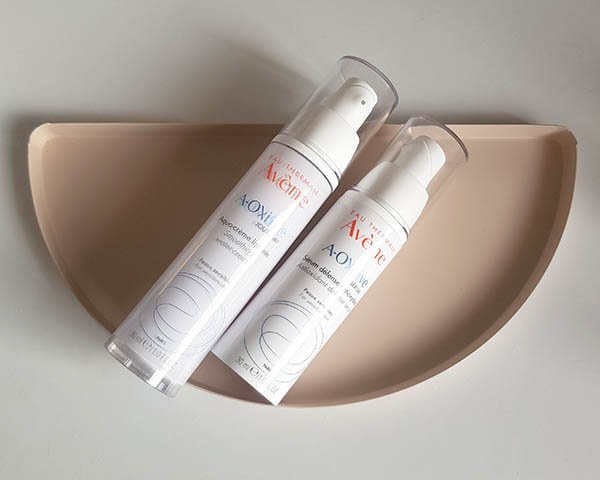
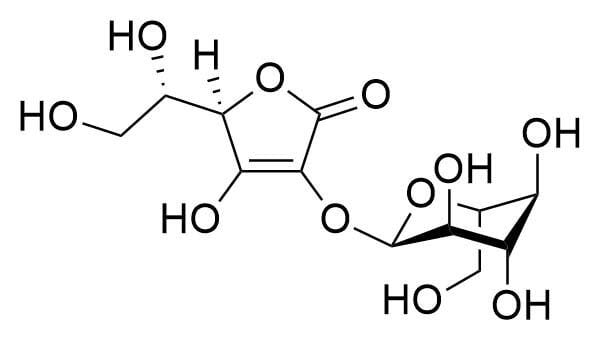
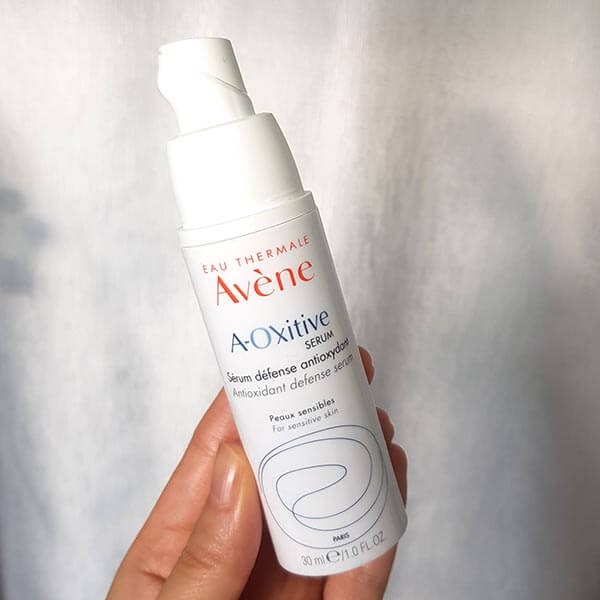
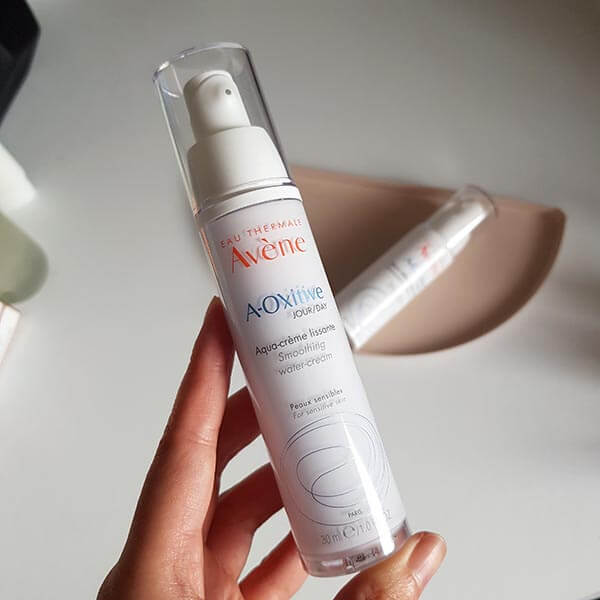
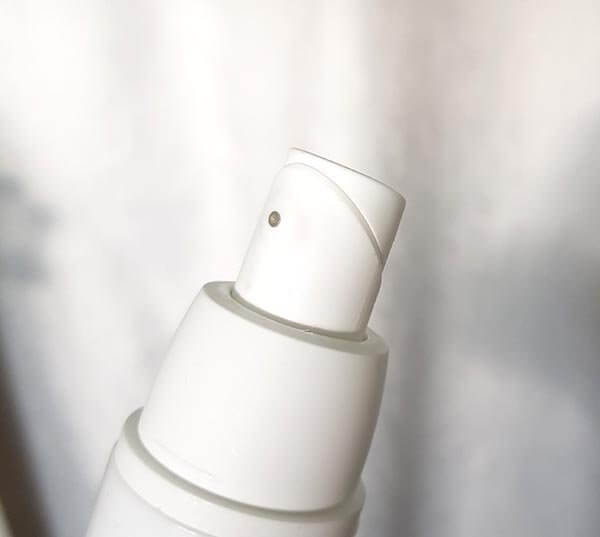


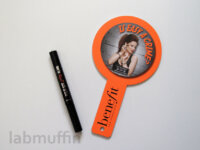
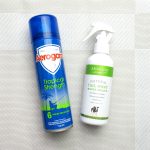

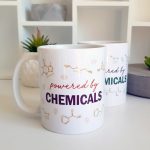
Thanks for reviewing these products. I react to propylene glycol but might have tried the serum if not for the fragrance. I use Paula’s Choice C15 Booster and my sensitive skin with rosacea is very happy with it.
I do use Vit C every day! I love it too 🙂 I used NIOD’s Vit C and the Ordinary and Indeed Labs Vit C — maybe because they are both Canadian meaning that costs and shipping are not so high for me. I did buy (and am using up) Vit C powder by Julia Hunter (dermatologist in CA) but the cost was incredibly high so I won’t be repurchasing that anytime soon. Thanks for another great post! I buy Avene soap for my husb because he has very sensitive skin and has to be so careful with anything he puts on it. Their soap is excellent so I would definitely be open to trying their Vit C serum in the future.
Wonderful and informative article! Thank you! I’m sensitive to L-Ascorbic Acid. I love the results, but I can’t use it every day, and of course, it oxidizes, much of the product goes to waste.
I’m currently using a Vitamin C product by DRMTLGY called Vitamin C 5x, with Tetrahexyldecyl Ascorbate. Apparently, it’s an oil-soluble form of vitamin C and supposed to be more stable. It takes longer to brighten, but it’s gentle and effective.
I haven’t had any luck with Vitamin C. I’ve tried DIY, The Ordinary, Skin Deva and Timeless. I would love to try the Avene product, but I’m allergic to fragrance. It’s too bad, it sounded good.
I have been using Vitamin C for 8 months now and love it! Initially Timeless Vitamin C with ferulic acid and vitamin E ( great product )and then Ole Henrikson Truth Serum( overly perfumed and not as good; in my opinion)… Want something effective for my pigmentation and skin ‘ glow’ . Tempted to try the Vichy vitamin C ampules as I Timeless is out of stock ?
I’ve tried using ascorbic acid several times over the years, and each time I’ve given up after a couple of months. My skin just can’t take it, which bums me out. I’m encouraged by this article to try vitamin c again, but in the form of this derivative.
Great post! I use your DIY vitamin C serum, i only make 5ml at a time to make sure i always have a fresh batch ? my only concern is that my pH strips only have one colour indicator so I am afraid that the serum sometimes have a pH closer to 4 than 3, so if this serum becomes available in my country abd isn’t super expensive I might test the serum version out.
Thanks for a great review!
Thanks for the review! How can this formulation have only 1.8% ascorbyl glucoside (which was found to be equivalent to 15% ascorbic acid at protecting against UV) and The Ordinary Ascorbyl Glucoside Solution have a whopping 12%?! Thanks
Thank you for your always so informative, science backed blogs. I am looking for the best vitamin C derivate for sensitive skin. Would you say Ascorbyl Glucoside is more effective than Ascorbyl Tetraisopalmitate? I am really liking the SVR Hydracid C20 which contains ATIP.
You did link the page where you talk about different waters. Would be great if you did a full video on it . Benefits of using which water … tap vs bottled water vs distilled water vs thermal sprays. All the info one finds are never about washing your face with a certain kind of water ;))) , thank you C
You did link the page where you talk about different waters. Would be great if you did a full video on it . Benefits of using which water … tap vs bottled water vs distilled water vs thermal sprays. All the info one finds are never about washing your face with a certain kind of water ;))) , thank you , Cristina
I use Exiuviance vitamin C caps. They are individually wrapped in a biodegradable (supposedly) plastic-like caplet. I use it at night because i thought it would make my skin sun-sensitive! I alternate it with trenotin and put it on under my night time moisturizer. It’s also kind of greasy feeling and it DOES have a smell I associate with sunburned skin by the morning! I don’t mind the smell, and it makes my skin 63 year old skin look and feel great!. I am interested in the Avène. I wonder if it’s available in the US.
I love my vitamin C serums right now I am using By Wishtrend Vitamin C 15% + Ferulic Acid. So far I have never felt any discomfort or any irritation from it and it’s helping fade any pigmentations I have from acne. I am also excited to try Dr Sam Bunting’s Brightly Serum as it contains 4 actives: azelaic acid, ascorbyl glucoside, niacinamide and bakuchiol which eliminates the worry of layering actives, especially in the morning when you just want a productive skincare routine. Thank you so much Michelle for a very informative post I love learning more about skincare ingredients and skincare in general, it’s inspiring. Thank you!
Fantastic article! I use a Vitamin C serum by DRMTLGY called Vitamin C 5x (now discontinued). It has five types of vitamin C, including Tetrahexyldecyl Ascorbate, an oil-soluble form of vitamin c that’s supposedly more stable and able to penetrate. I seem to tolerate that better than 15% vitamin C.
I love that using vitamin C under sunscreen increases the efficacy and reduces hyperpigmentation. A win win!
I’ve been using Tatcha Violet C brightening Serum. Have really noticed age spots fading. Love this product
I use your vitamin c serum and I love it. It’s hard to find vit c serums in Turkey so it was fantastic to be able to make my own with a few very cheap purchases online. The pharmacies do sell the French brands so I will look out for these products but i wonder if Turkey has different laws as it’s very hard to find vitamin c creams. I made my first batch of serum a week ago and added glycerin and I’m so delighted with it. Thank you!
What about the effectiveness of THD?
I haven’t looked into it properly yet – I’m planning to do a big roundup of vitamin C derivatives at some point but it takes a lot of time and research unfortunately!
The following 2 products from SVR contain THD. SVR Clairial serum contains 2% THD,and derivatives of vitamin E and ferulic acid.
SVR Hydracid C20 contains 20% THD
Hi Michelle! I didn’t ask my question in your insta comments as you’re less likely to notice it there.. But hopefully you might see it here ?
I did ask some people this exact question and they replied with great answers but as I’m preparing an article on the forms of vitamin c, I would also like to hear your thoughts on it! More information, the better I guess! Here’s the question:
What are the differences between natural sources of vitamin c like Terminalia ferdinandiana/ Kakadu Plum extracts and L-ascorbic acid and other derivatives of vitamin c?
I have seen some products with the Kakadu plum extracts and how do they compare to L-ascorbic acid? Is it even used in the products for its vitamin c content?
Which one is superior and more effective/reliable?
Looking forward to your reply! Thanks in advance! ?
No real difference – it’s just harder to work out the percentage (you can try to ask the brand). There’s also more likely to be a mix of antioxidants in it, but many products with synthetic vit C also include a blend.
I did email the company by asking what the purpose of the Kakadu plum extract in their product was (since it was just a plain moisturizer, not a vitamin c product) but their response was a plain description of Kakadu extract, how it is a rich source of vitamin c and all! They claimed their product has antioxidants.. I don’t know what to say about it lol
So does it have the same effects as pure L-AA or any other derivatives of vitamin c?
Which one is more potent and effective in your opinion?
It contains L-AA mixed with some other stuff, so it’s impossible to say whether it’s more potent or effective without knowing the concentration.
I use Vitamin C, but try to stick to L-Ascorbic-Acid for the lack of evidence on the derivatives. Very reassuring to see that there is some data behind this one though, maybe it is time for a switch.
This is CRAZY… I’ve just had 3 samples from the farmacy today (in Italy), I tried it during my pm routine and I love it, even more because you wrote about it! Thank you…
Thank you for this post on a different Vit. C derivative! ? I am curious to find out your opinion on Vit. C serums in the form of SODIUM ASCORBYL PHOSPHATE. Supposedly, it’s a highly stable version of Vit. C that’s more practical for skincare since it does not degrade quickly, and can be placed in transparent jar packaging. (Plus, it is also cheaper! ? ) Then again, I am curious to find out your thoughts on this. The one I’m planning to use is the DERMAE Vit. C serum (that uses this supposedly more stable & effective form of Vit. C “Sodium Ascorbyl Phosphate”). I’d love to try the Skinceutical Vit. C Ferulic serum, but it is just soooo expensive ?? although, at least, that one is backed up by tons of research…) I’m looking forward to your thoughts. Thank you and take care ???
I stopped reading at sponsored by Avene.
https://labmuffin.com/thoughts-on-sponsorships-disclosures-product-samples-bias-etc/
Hi Michelle,
I have been wondering, what is it about Avene and La Roche Posay’s water that give them those purported skin benefits? There seems to be very little information out there about the actual mineral composition of the water used in these products which can “soothe redness and calm irritation.”
Would love to hear your input on this!
This post might be helpful: https://labmuffin.com/what-is-thermal-water-and-how-does-it-work-in-skin-care/
I wouldn’t consider this lightly fragranced, the scent is quite strong and a huge turn off if you don’t like this particular scent which I unfortunately didn’t. Normally I don’t mind fragrance in products because it can make the process more enjoyable. I tried the water cream.
There are two schools of thought about using niacinamide above Vitamin C. What’s your opinion?
Hi there,
I’m curious to know if this the serum would be ok to use in any post Microneedling healing stages?
Many thanks!